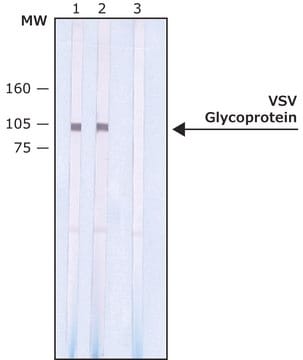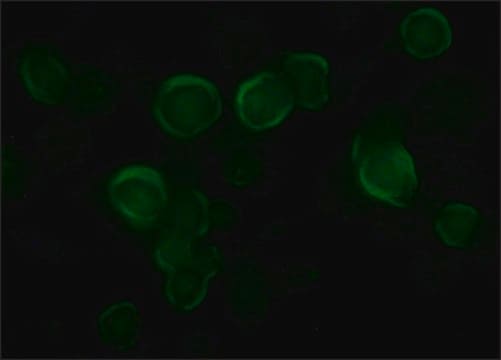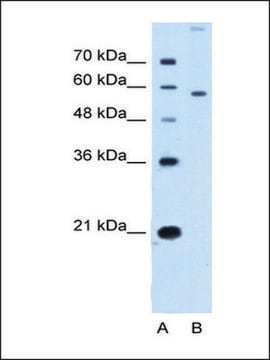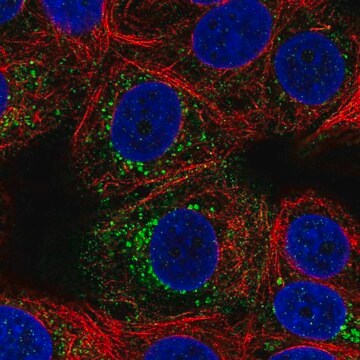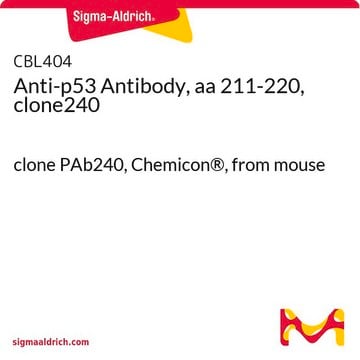SAB4200695
Anti-VSV Glycoprotein antibody, Mouse monoclonal
clone P5D4, purified from hybridoma cell culture
Synonyme(s) :
VSV, VSV glycoprotein, Vesicular Stomatitis Virus glycoprotein
About This Item
Produits recommandés
Source biologique
mouse
Niveau de qualité
Forme d'anticorps
purified immunoglobulin
Type de produit anticorps
primary antibodies
Clone
P5D4, monoclonal
Forme
buffered aqueous solution
Espèces réactives
virus (Vesicular stomatitis virus (VSV))
Conditionnement
antibody small pack of 25 μL
Concentration
~1 mg/mL
Technique(s)
immunoblotting: 0.5-1 μg/mL using whole extract of human HEK-293T cells over-expressing Vinculin with VSV-G tagged fusion protein.
immunocytochemistry: suitable
immunofluorescence: 5-10 μg/mL using COS7 cells over-expressing Vinculin with VSV-G tagged fusion protein.
immunoprecipitation (IP): suitable
Isotype
IgG1
Conditions d'expédition
dry ice
Température de stockage
−20°C
Modification post-traductionnelle de la cible
unmodified
Description générale
Application
Actions biochimiques/physiologiques
Forme physique
Clause de non-responsabilité
Vous ne trouvez pas le bon produit ?
Essayez notre Outil de sélection de produits.
Code de la classe de stockage
12 - Non Combustible Liquids
Classe de danger pour l'eau (WGK)
nwg
Point d'éclair (°F)
Not applicable
Point d'éclair (°C)
Not applicable
Certificats d'analyse (COA)
Recherchez un Certificats d'analyse (COA) en saisissant le numéro de lot du produit. Les numéros de lot figurent sur l'étiquette du produit après les mots "Lot" ou "Batch".
Déjà en possession de ce produit ?
Retrouvez la documentation relative aux produits que vous avez récemment achetés dans la Bibliothèque de documents.
Notre équipe de scientifiques dispose d'une expérience dans tous les secteurs de la recherche, notamment en sciences de la vie, science des matériaux, synthèse chimique, chromatographie, analyse et dans de nombreux autres domaines..
Contacter notre Service technique